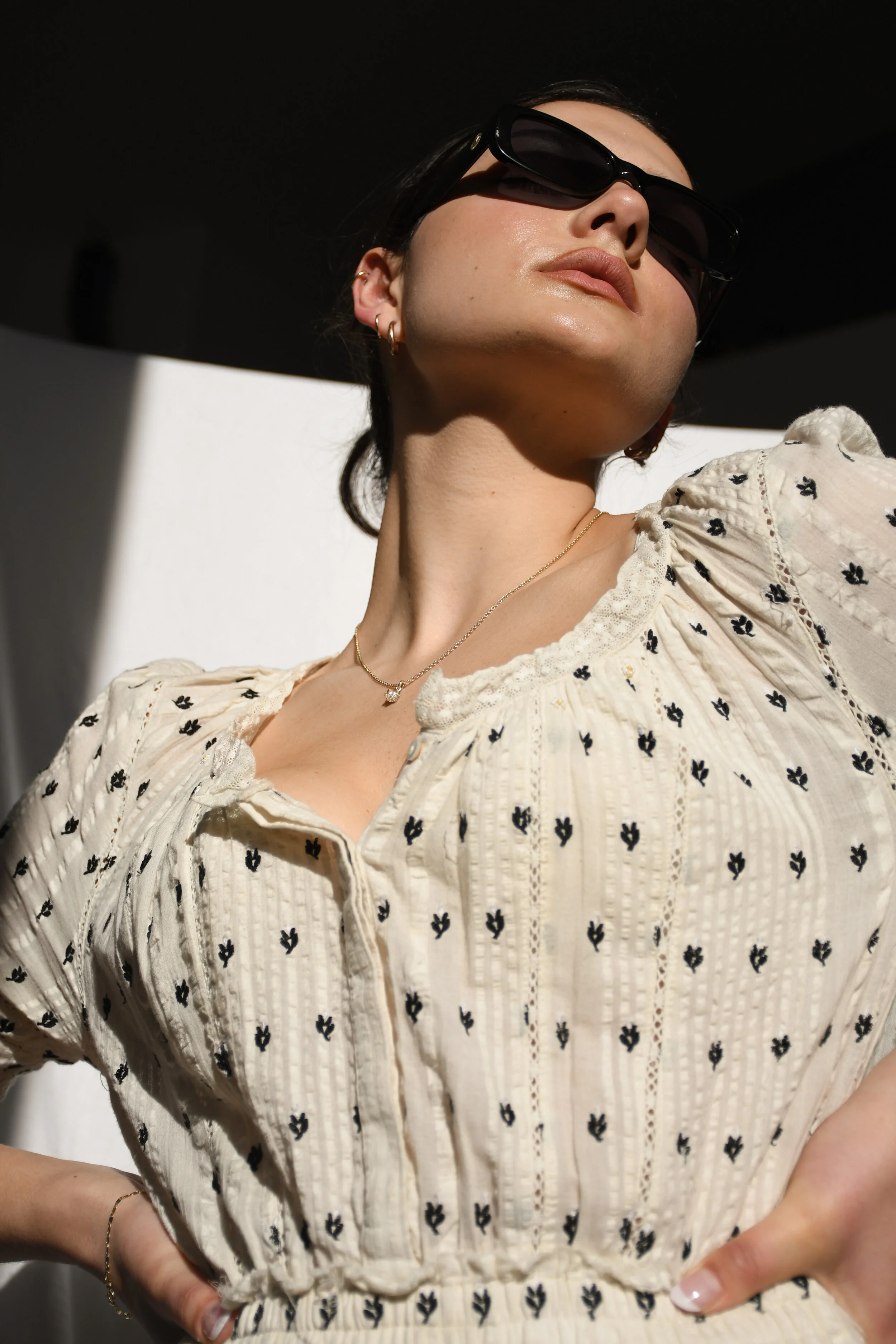September 2020
Fashion forward sustainability with Orlane Antoun
The art of thrifting is ever more popular as people are becoming aware of the fast fashion industry’s environmental damages. Although many of us know the benefits of thrifting, actually making the transition to more sustainable ways of purchasing clothing can be difficult and time-consuming. So I spoke to a good friend of mine, thrifting expert Orlane Antoun, to get some second-hand hunting advice.
Orlane wearing her favourite LoveShackFancy dress
Just to refresh ourselves, fast fashion refers to low-cost clothing, produced quickly to meet the latest trends. The unfortunate truth is that rapid, inexpensive production of clothing can't be sustainable. Not only does it generate thousands of tonnes of waste each year, leaving an expansive carbon footprint, it also leaves workers underpaid in unsafe, unkempt environments. That’s enough of a reason to ditch the high street chain stores and give pre-loved clothes a second chance at life.
I’ve always been in awe at how effortlessly Orlane puts together looks, and whenever I inquire as to where she purchased a piece of clothing, she often tells me it's a thrift find. As much as I enjoy thrifting myself, I’ve never had the set of skills to successfully hunt through piles of garments and find the hidden gems. Orlane takes several ethical components into account when making any clothing purchase. This sometimes means investing a little bit more into one item rather than amassing a collection of unethically made, cheaper garments.
“I believe in investing in things I’ll have for a long time, and buying ethically produced clothes made from sustainable materials and natural dyes. I try to buy from places that pay their workers well, this always costs more but it’s worth investing in,” she says.
When it comes to finding where to shop, Orlane often opts for online stores for more variety. She recommends trying out Facebook and Instagram marketplace, alongside Depop, all easily accessible and fit for any budget. She talks about the benefits of joining New Zealand based Facebook groups devoted to pre-loved clothing such as the popular ‘Out with the old, in with the new!’ For those looking for vintage designers, she recommends eBay, Etsy, and TradeMe.
“If I have a specific second-hand Facebook or Instagram seller that sells nice stuff I will put them on notifications so I know when they have posted,” she says.
To get the most out of your thrifting experience, Orlane believes in knowing exactly what you are looking for before venturing into the overwhelming masses of clothing. This includes getting fashion inspiration that can help you locate what garments you are looking for and know what section to look in.
“Because searching through hoards of clothing and web pages can take time that many of us do not have, I recommend spending an afternoon creating very specific saved searches. Refining categories like size and brand can simplify the online shopping process. This applies to regular shopping too, some major websites like The Iconic and ASOS have even added a feature that will only show you responsible brands, so utilising the search and filter function is key.”
“The benefits of shopping second-hand reach beyond just being sustainable…
…finding unique pieces is rewarding and makes it special”
“Aside from the ethical
part, I just love the idea
of having something
unique…”
“I recently got this Alpha 60 dress, I think I paid only $60NZD for it, it’s a lovely structured green dress. Some of my other best finds are my Penny Sage jumpsuit from Facebook, Chloe jacket from TradeMe, and my Vivienne Westwood leather gloves,”
She continues, “I usually would never, ever buy animal fur but second-hand fur, I believe, is one of the most ethical things you can get. It’s more biodegradable than faux fur and it's already been produced, purchased, and had a life. I’m just extending that life”.
The benefits of shopping second-hand reach beyond just being sustainable, Orlane makes the point that finding unique pieces is rewarding and makes it special.
“Aside from the ethical part, I just love the idea of having something unique, and I enjoy the chase. When I buy first-hand, a lot of the time I feel like it's cheating because it’s so easy and it doesn’t have that character or back story to it. I love that feeling when you find something and know it's a good find and you treasure it way more, especially if you get it at a good price, it just makes it so much more special”∎

